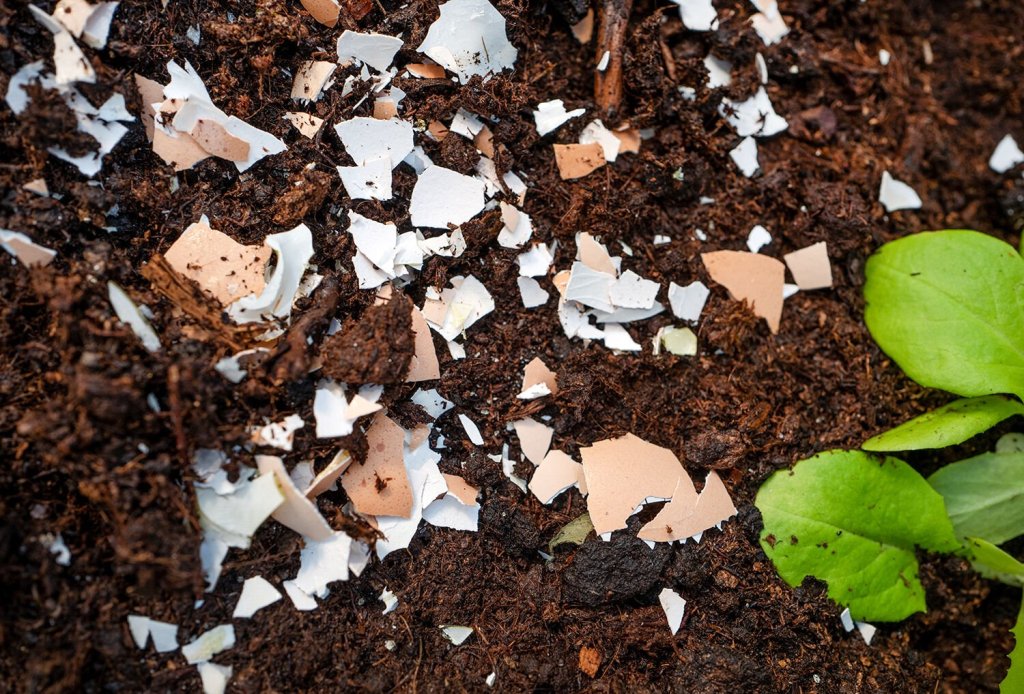All about eggs: Everything you should know
Published 6:30 am Monday, April 11, 2022

- Use crushed eggshells in your garden's soil as a natural fertilizer.
Chances are, you have a carton of eggs sitting in your fridge, but what do you really know about these petite sources of protein? Are brown eggs better for you than white eggs? Why are there different sizes of eggs? And what does it mean if the yolk is orange instead of yellow?
Read on for everything you ever wanted to know about this egg-ceptional ingredient.
Does the color of the eggshell affect the taste of the egg?
The color of an egg’s shell doesn’t impact its flavor. The variety of shell shades — from browns and blues to deep olive green — simply indicate a hen’s breed. Fun fact: You can tell the color of a hen’s eggs by looking at her earlobes. Who knew chickens have earlobes?
Does an orange yolk mean that an egg is bad?
An egg with a deep-orange yolk indicates that the hen that produced it has a healthy and varied diet, rich in vitamins and minerals, derived from consuming plants, vegetables and insects.
Pale-yellow yolks demonstrate that a hen has a feed-based diet. Chicken feed is usually made of grains and often enriched with beneficial nutrients like omega-3 fatty acids.
Can eggs have more than one yolk?
Eggs with two yolks, often called “double yolkers,” are rare, occurring an average of only once in every thousand eggs laid. Some eggs can end up with more than two yolks; the most yolks ever recorded in one eggshell is nine!
What about size?
The size of an egg is determined by a hen’s age: The older the hen, the bigger the egg. The U.S. Department of Agriculture (USDA) has created six weight-based categories for eggs that are sold to consumers.
- Small: approximately 1.5 ounces
- Medium: approximately 1.75 ounces
- Large: approximately 2 ounces
- Extra Large: approximately 2.25 ounces
- Jumbo: approximately 2.5 ounces
3 absolutely amazing dishes that come from a carton of eggs
Are eggs good for you?
Eggs are an easy and accessible form of protein that offer a lot of nutritional bang for their buck and are an integral part of the American diet. In 2021 alone, each American ate an average of 286 eggs — which might seem like a lot of eggs, but keep in mind that number includes eggs that were consumed as part of baked goods and desserts.
One large egg contains 75 calories, 6 grams of protein (3 grams each in the white and in the yolk) and 5 grams of fat. As for vitamins and other nutrients, eggs are rich in iron, phosphorus, choline and selenium as well as vitamins A, B12, B2 and B5.
Can I eat as many eggs as I want?
In 2020, the USDA released new dietary guidelines for Americans, presenting a significant shift in the messaging about eggs. Perhaps most surprising is a new emphasis on the notion that eggs are an important part of a very young child’s diet. Avoiding eggs in a child’s early years had previously been recommended by pediatricians for decades.
Additionally, the new guidelines reverse the USDA’s long-standing tenet that eggs are loaded with dangerous levels of fat and cholesterol. The updated guidelines offer an open endorsement for people of all ages to consume eggs in order to reap abundant health benefits.
How long can you keep eggs?
Eggs you purchase at the supermarket typically last three to four weeks in the refrigerator, but can remain fresh even longer. (For the freshest eggs available, purchase eggs from a local farm.) The date on the carton is typically a “sell by” date, and not a date upon which the eggs will suddenly be rotten.
You also don’t have to worry that you might inadvertently eat a spoiled egg. As with many other fresh ingredients, eggs give off an odor when past their prime. You’ll know when an egg has gone bad — it will smell like sulfur.
Did you know that in other parts of the world, eggs are stored on the counter or in another room-temperature environment? So why, here in the U.S., do we store our eggs in the refrigerator? Short answer: because the U.S. Food and Drug Administration (FDA) requires any eggs sold in the U.S. to be washed during processing, which rinses away the natural barrier that protects each egg from bacteria.
Is there anything I can do with eggshells to help reduce food waste?
Eggshells are an excellent soil amendment for your indoor plants and outdoor garden. The calcium within the shells helps to moderate acidity in the soil. Crush them and place them in the bottom of pots used for houseplants, or toss them in the hole before sowing seeds in your garden. Alternatively, sprinkling cracked (but not crushed) shells on top of your garden’s soil is a deterrent to slugs.
If none of these options appeal to you, then consider composting eggshells with your other food waste. If you must toss them out, the trash is the ideal spot for them; eggshells can damage garbage disposals.





